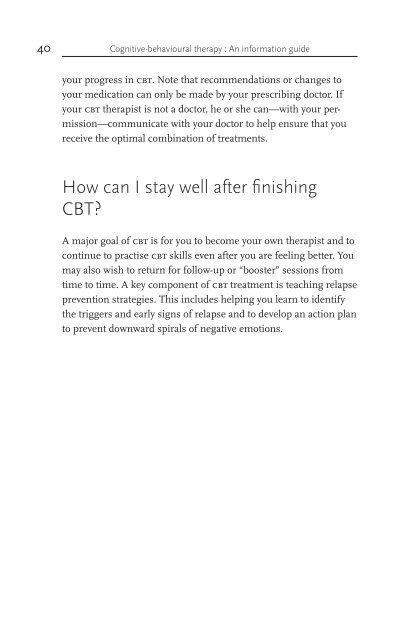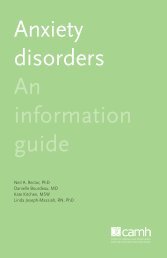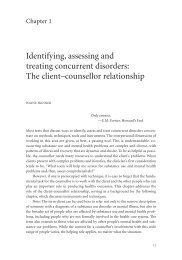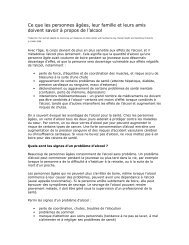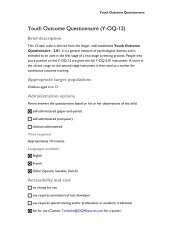Cognitive-behavioural therapy: An information guide - CAMH ...
Cognitive-behavioural therapy: An information guide - CAMH ...
Cognitive-behavioural therapy: An information guide - CAMH ...
You also want an ePaper? Increase the reach of your titles
YUMPU automatically turns print PDFs into web optimized ePapers that Google loves.
40 <strong>Cognitive</strong>-<strong>behavioural</strong> <strong>therapy</strong> : <strong>An</strong> <strong>information</strong> <strong>guide</strong><br />
your progress in cbt. Note that recommendations or changes to<br />
your medication can only be made by your prescribing doctor. If<br />
your cbt therapist is not a doctor, he or she can—with your permission—communicate<br />
with your doctor to help ensure that you<br />
receive the optimal combination of treatments.<br />
How can I stay well after finishing<br />
CBT?<br />
A major goal of cbt is for you to become your own therapist and to<br />
continue to practise cbt skills even after you are feeling better. You<br />
may also wish to return for follow-up or “booster” sessions from<br />
time to time. A key component of cbt treatment is teaching relapse<br />
prevention strategies. This includes helping you learn to identify<br />
the triggers and early signs of relapse and to develop an action plan<br />
to prevent downward spirals of negative emotions.


